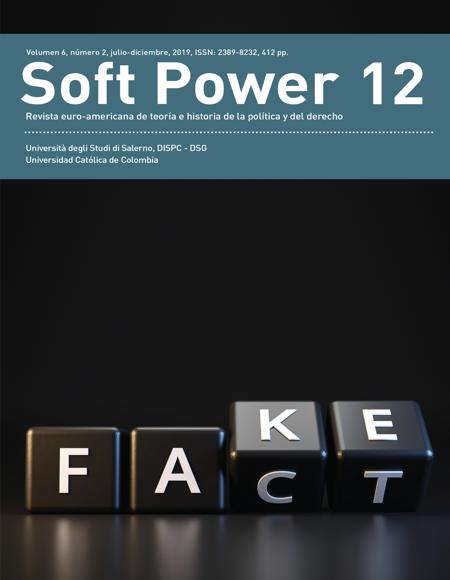Resumen
En 1873, Nietzsche afirmó que, para las cosas, se ha inventado una designación válida general y uniforme. Esta designación tiene fuerza normativa: de hecho, la legislación «lingüística» que domina la práctica del lenguaje establece las primeras leyes de la verdad (Sobre verdad y mentira en sentido extramoral). En otras palabras, para Nietzsche, la naturaleza artificial de la verdad, dada la naturaleza artificial del lenguaje mismo, estaba fuera de discusión. En este artículo, abordo el debate contemporáneo sobre la posverdad yuxtaponiéndolo a la idea de verdad “artificial” o “convencional” típica del discurso legal y mostrando la aporía detrás de cada búsqueda de la verdad. Para hacerlo, me centraré en la naturaleza específica de verdad “legal” y propongo considerar la centralidad de la fuerza performativa de los procedimientos de creación de la verdad –crucial para los abogados y la práctica legal– para subrayar la importancia que la tecnología juega en la construcción de la verdad también en el discurso político.
Palabras clave

Citas
Andina T. (2019). Truth, Lies and Post-Truth. In Condello A. & Andina T. (Eds.). PostTruth, Philosophy and Law. London: Routledge.
Arendt H. (1968). Truth and Politics. In Arendt H. Between Past and Future. Eight Exercises in Political Thought (pp. 227-264). London: Penguin.
Condello A. & Andina T. (Eds., 2019). Post-Truth, Philosophy and Law. London: Routledge.
Condello A. (2019). After the Ordeal. Law and the Age of Post-Truth. In Condello A. & Andina T. (Eds.). Post-Truth, Philosophy and Law. London: Routledge.
Derrida J. (1978). Writing and Difference. Alan Bass (Transl.). Chicago: University of Chicago Press.
Domenicucci J. (2019). Can we trust post-truth? A Trojan Horse in liberal counterspeech. In Condello A. & Andina T. (Eds.). Post-Truth, Philosophy and Law. London: Routledge.
Ferraris M. (2017). Fare la verità. Proposta di una ermeneutica neorealista. In Rivista Italiana di Filosofia del Linguaggio, vol. 11, n. 1.
Fitzpatrick P. (2017). Post-truth: For or Against Socio-legal Studies?. In Socio-Legal Review https://www.sociolegalreview.com/post-truth-for-or-against-socio-legal-studies
Foucault M. (2007). Security, Territory, Population: Lectures at the Collège de France 1977–1978. (Trans. Graham Burchell). Houndmills, Basingstoke: Palgrave Macmillan.
Marconi D. (2019). Fake news, the crisis of deference, and epistemic democracy. In Condello A. & Andina T. (Eds.). Post-Truth, Philosophy and Law. London: Routledge.
Mason L. (2019). Idealism, empiricism, pluralism, law. Legal truth after modernity. In Condello A. & Andina T. (Eds.). Post-Truth, Philosophy and Law. London: Routledge.
Patterson D. (1996). Law and Truth. Oxford: OUP.
Resta E. (2008). Diritto vivente. Roma-Bari: Laterza.
Schiavone A. (2017). Ius. L’invenzione del diritto in Occidente. Torino: Einaudi.
Viola F. (1995). Judicial Truth. Persona y derecho, 32, 1995, pp. 249–266.














